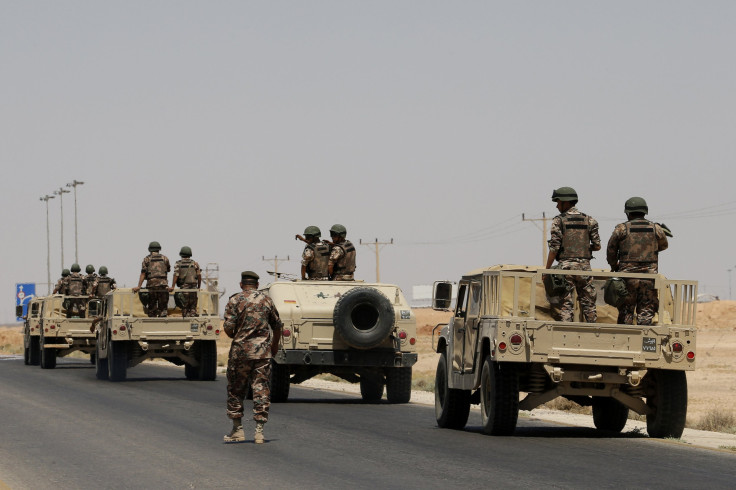Jordan's Officials Worry ISIS May Target It Next, After Iraq, Amid Growing Support From Locals

Jordan’s officials suspect the militant group Islamic State in Iraq and Syria (ISIS) is now targeting their country, after increasing its offensive in Iraq and capturing that nation’s city of Rutba, 90 miles east of the Jordanian border.
Domestic officials and foreign diplomats have expressed fears of destabilization, the Telegraph reported Saturday. Jordanian troops reportedly hurried to the country’s eastern border this week and positioned themselves to fight off any advance by ISIS. Jordan is strategically important, as it has been a significant ally of the West, and a relatively stable society.
“ISIS is now being seen as a protector of Sunni identity,” said Hassan Abu Hanieh, an analyst of jihadist groups quoted by the Telegraph. He added: “The number of Sunnis in Jordan who now subscribe to the extremist ideas of ISIS is increasing. They are drawn to the newfound power of ISIS. People revere them now.”
Jordanians did not support ISIS initially, as they linked the group to the 2005 blasts in the capital city of Amman that killed nearly 60 people. Lately, however, the Sunni majority in the country has begun finding the group’s agenda of fighting for their rights an increasingly attractive option, according to the Telegraph.
“Approximately 300 Jordanians went to fight in Afghanistan, and then 400 in Iraq after the allied invasion. Today there are approximately 1,200 Jordanian jihadists fighting with either ISIS or al Qaeda’s Jabhat Al-Nusra,” Hanieh said, according to the Telegraph.
Jordan has also witnessed an increasing number of clashes between government forces and the population, with police forces raiding homes more as the number of demonstrations has risen.
“We no longer trust or respect the government and have been searching for an alternative that ensures our basic rights,” Mohammed Kreishan, a marcher who was protesting against the government in Amman, said on Wednesday, according to the Washington Post. He added, “In the Islamic State, we have found our alternative.”
While estimates indicate that more than 2,000 Jordanians have joined hands with ISIS to fight in Syria, the government is worrying about the spillover effect it may have on Jordan’s borders with Iraq and Syria.
“We are quite confident when it comes to securing the border,” Mohammad Farghal, a retired major general and the director general of Center for Strategic Studies at the King Abdullah II Defense Academy, told the Post. He added government officials are more worried that “poverty and dissatisfaction create fertile ground for extremist organizations in Jordan. This is our greatest security challenge.”
According to the Post, Abu Sayyaf, a leader of Jordan’s Salafi movement, said: “We warned those who are aligned with the Islamic State not to go out and rally or to take any action in Jordan, as it is outside their religiously sanctioned mission and would hand a gift to Jordanian authorities trying to depict us as terrorists. ... Unfortunately, these are kids who know very little about their own religion, about jihad, and are not willing to answer or listen to anybody.”
© Copyright IBTimes 2025. All rights reserved.





















